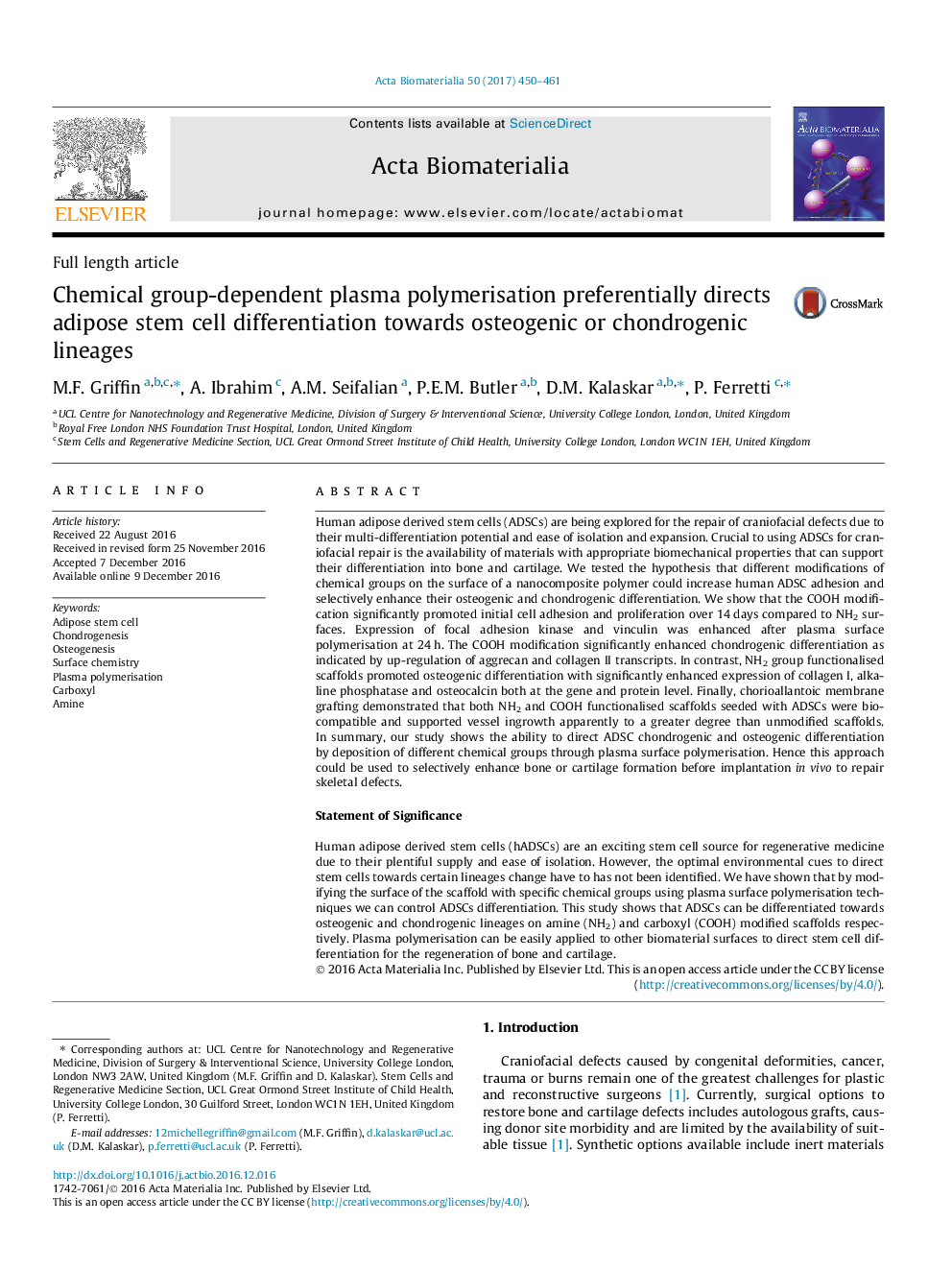| کد مقاله | کد نشریه | سال انتشار | مقاله انگلیسی | نسخه تمام متن |
|---|---|---|---|---|
| 6449745 | 1415936 | 2017 | 12 صفحه PDF | دانلود رایگان |

Human adipose derived stem cells (ADSCs) are being explored for the repair of craniofacial defects due to their multi-differentiation potential and ease of isolation and expansion. Crucial to using ADSCs for craniofacial repair is the availability of materials with appropriate biomechanical properties that can support their differentiation into bone and cartilage. We tested the hypothesis that different modifications of chemical groups on the surface of a nanocomposite polymer could increase human ADSC adhesion and selectively enhance their osteogenic and chondrogenic differentiation. We show that the COOH modification significantly promoted initial cell adhesion and proliferation over 14Â days compared to NH2 surfaces. Expression of focal adhesion kinase and vinculin was enhanced after plasma surface polymerisation at 24Â h. The COOH modification significantly enhanced chondrogenic differentiation as indicated by up-regulation of aggrecan and collagen II transcripts. In contrast, NH2 group functionalised scaffolds promoted osteogenic differentiation with significantly enhanced expression of collagen I, alkaline phosphatase and osteocalcin both at the gene and protein level. Finally, chorioallantoic membrane grafting demonstrated that both NH2 and COOH functionalised scaffolds seeded with ADSCs were biocompatible and supported vessel ingrowth apparently to a greater degree than unmodified scaffolds. In summary, our study shows the ability to direct ADSC chondrogenic and osteogenic differentiation by deposition of different chemical groups through plasma surface polymerisation. Hence this approach could be used to selectively enhance bone or cartilage formation before implantation in vivo to repair skeletal defects.Statement of SignificanceHuman adipose derived stem cells (hADSCs) are an exciting stem cell source for regenerative medicine due to their plentiful supply and ease of isolation. However, the optimal environmental cues to direct stem cells towards certain lineages change have to has not been identified. We have shown that by modifying the surface of the scaffold with specific chemical groups using plasma surface polymerisation techniques we can control ADSCs differentiation. This study shows that ADSCs can be differentiated towards osteogenic and chondrogenic lineages on amine (NH2) and carboxyl (COOH) modified scaffolds respectively. Plasma polymerisation can be easily applied to other biomaterial surfaces to direct stem cell differentiation for the regeneration of bone and cartilage.
76
Journal: Acta Biomaterialia - Volume 50, 1 March 2017, Pages 450-461